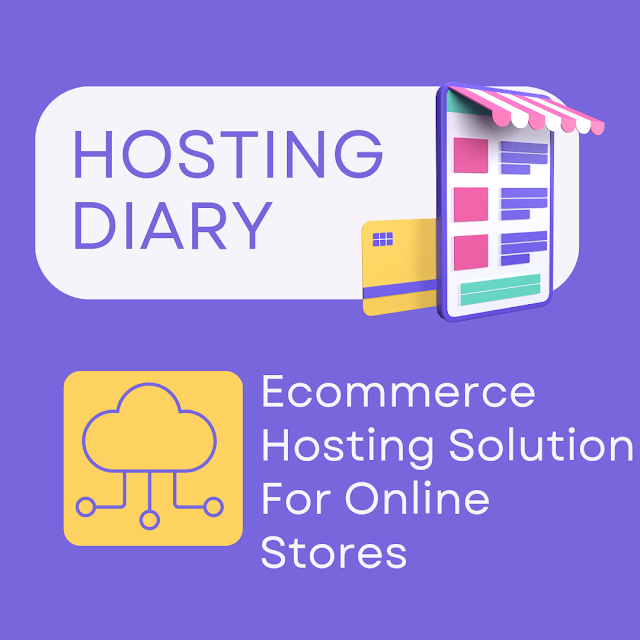Ecommerce Hosting Solution For Online Stores
Also Read :-
- Difference Between Shared Hosting and Cloud Hosting
So, you've decided to turn your brilliant business idea into a thriving online store! Congratulations! But before customers flock to your virtual doors, you need a place to showcase your products and handle those purchases. This is where ecommerce hosting comes in – this is the foundation upon which your online store is built.
Ecommerce Hosting Explained
Think of ecommerce hosting as your online shop's landlord. They provide the space (storage) and resources (power) to keep your store running smoothly. But unlike a regular landlord, an ecommerce hosting provider offers features specifically designed for online stores. Here's what sets them apart:
Shopping Cart Software - This is the heart of your online store. It allows customers to add items to their virtual basket, calculate totals, and securely checkout. Your ecommerce host often includes popular shopping cart software like WooCommerce or Magento, or makes them easy to install.Payment Processing - This ensures you get paid! Your ecommerce host will connect you with secure payment gateways like PayPal or Stripe, allowing customers to pay with credit cards, debit cards, or other online payment methods.
Security: - Keeping your customer's information safe is critical. Ecommerce hosting providers offer high-level security features like firewalls and malware protection to shield your store from cyberattacks.
Choosing the Right Ecommerce Hosting Solution
With so many options out there, how do you pick the perfect ecommerce hosting provider? Here are some key factors to consider:
Ease of Use: If you are new to online stores, choose a host with a user-friendly platform that makes setting up and managing your store simple. Look for features like drag-and-drop website builders and pre-designed templates.Features: Consider the features you need for your store. Do you need tools for managing inventory, running discounts, or integrating with social media? Make sure your chosen host offers these functionalities.
Security: Don't compromise on security! Choose a provider with robust security measures like firewalls, malware scans, and SSL certificates (which make your website connection secure).
Customer Support: Reliable customer support is essential, especially if you encounter any technical difficulties. Opt for a provider with 24/7 support via phone, chat, or email.
Pricing: Ecommerce hosting plans range in price depending on the features offered and the amount of storage and bandwidth you need. Compare pricing structures and choose a plan that fits your budget.
Popular Ecommerce Hosting Options
Here are some well-known ecommerce hosting providers known for their user-friendly features and strong support:
Shopify: A popular all-in-one solution, Shopify is perfect for beginners. They offer user-friendly tools, a vast app store for adding features, and built-in payment processing. However, Shopify plans can be pricier as your store grows.BigCommerce: Another great option, BigCommerce focuses on scalability and powerful features. It's suitable for businesses with a larger product range or those needing advanced functionalities.
WooCommerce Hosting: This option utilizes the popular WooCommerce plugin for WordPress. It's a cost-effective solution for those comfortable with WordPress and gives you a high degree of control over your store's design and functionality. However, you'll need to manage security and backups yourself.
HostGator: Offers shared hosting plans with ecommerce capabilities, making it a good choice for basic online stores. They provide one-click installation for shopping cart software and offer good value for the price. But features and scalability may be limited compared to dedicated ecommerce platforms.
Bluehost: Similar to HostGator, Bluehost offers shared hosting plans with ecommerce features. They are known for their user-friendly interface and budget-friendly pricing, but may not be suitable for high-traffic stores.
Getting Started with Your Online Store
Once you choose your ecommerce hosting provider, it is time to build your online empire! Here is a simplified roadmap
Pick a Domain Name: This is your online store's web address (like Amazon). Choose a name that's easy to remember and reflects your brand
